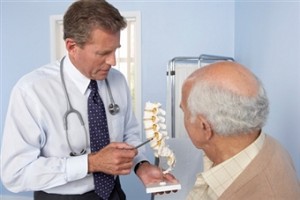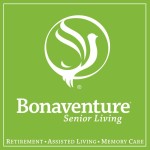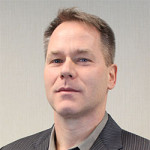 Kelley D. Hamilton is the CEO of Bonaventure Senior Living, a network of retirement and senior living communities throughout the Western United States. Today, we speak with Mr. Hamilton about the feasibility of exercise for seniors with osteoporosis. According to Kelley D. Hamilton, Bonaventure Senior Living residents are encouraged to exercise and stay fit. Here’s why.
Kelley D. Hamilton is the CEO of Bonaventure Senior Living, a network of retirement and senior living communities throughout the Western United States. Today, we speak with Mr. Hamilton about the feasibility of exercise for seniors with osteoporosis. According to Kelley D. Hamilton, Bonaventure Senior Living residents are encouraged to exercise and stay fit. Here’s why.
Interviewing Experts: Thank you for joining us today.
Kelley D. Hamilton, Bonaventure Senior Living: I appreciate the opportunity to talk about this important topic.
Interviewing Experts: Why is exercise so important for seniors?
Kelley D. Hamilton, Bonaventure Senior Living: Regular physical activity markedly reduces age-related bone loss. This is important because osteoporosis is a major concern for seniors and is also a leading cause of fractures of the wrists, hip and spine.
Interviewing Experts: How should someone over the age of 50 begin a new exercise regimen?
Kelley D. Hamilton, Bonaventure Senior Living: It’s always important to check with your health-care provider before starting any new exercise regimen, even those not suffering from osteoporosis.
Interviewing Experts: What types of activities are recommended?
Kelley D. Hamilton, Bonaventure Senior Living: Most should stay with low-impact exercises such as walking or swimming. A good combination of cardiovascular and strength training exercises can help ward off bone loss and stimulate bone growth.
Interviewing Experts: But don’t most exercises involve heavy twisting of the bones?
Kelley D. Hamilton, Bonaventure Senior Living: People with osteoporosis should definitely modify exercises as needed to avoid over-rotating the spine since it is highly susceptible to damage. Simple stretching, tai chi, and certain forms of yoga are great methods of low-impact exercise which can be done without excessive twisting.
Interviewing Experts: What about impact sports like senior baseball?
Kelley D. Hamilton, Bonaventure Senior Living: Those who’ve already been diagnosed with osteoporosis should probably avoid active sports such as baseball or even golf where significant strain is placed on the back and spine while swinging a bat or golf club. Most cities have water aerobics, swimming classes, or even water polo which can be great alternatives.
Interviewing Experts: Let’s go over the types of exercises seniors with osteoporosis should focus on.
Kelley D. Hamilton, Bonaventure Senior Living: There are four basic types of exercise: posture, hip and back, balance and functional.
Interviewing Experts: What is an easy exercise for posture?
Kelley D. Hamilton, Bonaventure Senior Living: There’s one called the corner stretch that helps seniors keep their shoulders stretched and upper back flattened.
Interviewing Experts: And for the hips?
Kelley D. Hamilton, Bonaventure Senior Living: The two that come to mind are hip abductors and prone leg lifts. Each works to strengthen a group of muscles that support the hip and improve flexibility.
Interviewing Experts: Why are balance exercises important for seniors at risk for osteoporosis?
Kelley D. Hamilton, Bonaventure Senior Living: Those with osteoporosis are at higher risk of breaking a bone when falling than those with healthy bones, so preventing falls is very important.
Interviewing Experts: What are some risk factors of osteoporosis?
Kelley D. Hamilton, Bonaventure Senior Living: Although anyone can get it, it is most typical in postmenopausal females over the age of 50 who are small in stature and have a family history of osteoporosis.
Interviewing Experts: So it’s more prevalent in women?
Kelley D. Hamilton, Bonaventure Senior Living: It is, yes. In fact, a woman is equally likely to break a hip due to osteoporosis, as she is to develop female-specific cancers.
Interviewing Experts: And men?
Kelley D. Hamilton, Bonaventure Senior Living: It’s much less common in men, but is actually more common than something like prostate cancer.
Interviewing Experts: What are some signs of osteoporosis?
Kelley D. Hamilton, Bonaventure Senior Living: Honestly, there may be no signs until someone gets a broken bone, but some people may noticeably lose height because of crushed vertebrae.
Interviewing Experts: That sounds very painful.
Kelley D. Hamilton, Bonaventure Senior Living: Osteoporosis is considered a silent disease. Most people don’t even feel that their bones are crumbling inside of them.
Interviewing Experts: Is osteoporosis something that only senior citizens have to worry about?
Kelley D. Hamilton, Bonaventure Senior Living: It is mostly found in mature adults, but children and teenagers can help build strong bones long before their retirement years. It is vital to get ample calcium and vitamin D to maintain healthy bones into adulthood.
Interviewing Experts: Is it really feasible to exercise after an osteoporosis diagnosis?
Kelley D. Hamilton, Bonaventure Senior Living: Absolutely. Many of our residents at Bonaventure who have osteoporosis are also very active. Our activity directors come up with all sorts of fun and engaging activities and projects which keep residents’ mobility and limitations in mind.
Interviewing Experts: We appreciate your time today. Thank you very much.
Kelley D. Hamilton, Bonaventure Senior Living: Thank you for the opportunity to speak on this important subject.
 In this brief Q&A Bonaventure Senior Living CEO Kelley D. Hamilton of Salem, Oregon answers some questions from seniors about stress and memory loss. Kelley D. Hamilton of Salem, Oregon advises that people of all ages can successfully combat these problems. By alleviating stress in our lives, Kelley D. Hamilton of Salem, Oregon believes we have the potential to better enjoy our normal routines.
In this brief Q&A Bonaventure Senior Living CEO Kelley D. Hamilton of Salem, Oregon answers some questions from seniors about stress and memory loss. Kelley D. Hamilton of Salem, Oregon advises that people of all ages can successfully combat these problems. By alleviating stress in our lives, Kelley D. Hamilton of Salem, Oregon believes we have the potential to better enjoy our normal routines. Parents spend their whole lives caring for their children, and many of those children now are caring for their parents. According to Kelley Hamilton of Bonaventure Senior Living, some adult children visit their parents in their homes and help out. For others, caretaking can mean blending households. But many people are also choosing an assisted living community, says Kelley Hamilton, Bonaventure CEO, as such places are gaining the reputation of being a positive place to end one’s days. As the chief executive officer for a company that builds and manages many senior living communities, Kelley Hamilton of Bonaventure knows these facilities are active communities where seniors can actually live life.
Parents spend their whole lives caring for their children, and many of those children now are caring for their parents. According to Kelley Hamilton of Bonaventure Senior Living, some adult children visit their parents in their homes and help out. For others, caretaking can mean blending households. But many people are also choosing an assisted living community, says Kelley Hamilton, Bonaventure CEO, as such places are gaining the reputation of being a positive place to end one’s days. As the chief executive officer for a company that builds and manages many senior living communities, Kelley Hamilton of Bonaventure knows these facilities are active communities where seniors can actually live life.